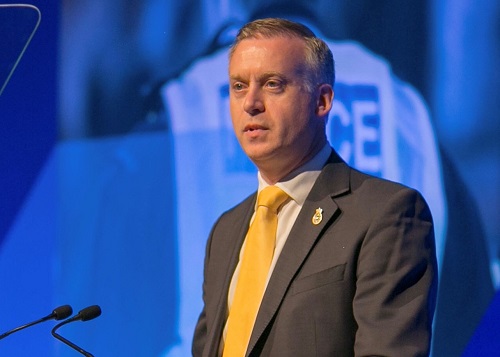The difficult and good work that officers do, and the contribution of wider societal problems, has been recognised as new figures relating to deaths during and after police contact are released.
The Independent Office for Police Conduct (IOPC) today (September 5) published its latest statistics for England and Wales 2018/19 which cover a range of incidents where there have been fatalities after the police have had contact with a person prior to their death.
The annual figures, which cover from April 2018 to March 2019, include road traffic fatalities involving the police; police fatal shootings; deaths in or following police custody and apparent suicides following police custody.
The figures show the following:
- 42 road traffic fatalities
- Three fatal police shootings
- 16 deaths following police custody
- 63 apparent suicides following police custody
- 152 other deaths following police contact that were independently
investigated - No deaths occurred in a police custody suite
The report highlighted that 10 of the 16 people who died following police custody had mental health concerns, and 13 had issues with drugs and/or alcohol.
Issues with substance abuse are also highlighted when the figure for other deaths where the police had had contact with the deceased is considered, with more than half (90) involving some form of intoxication, and two thirds (104) involving some type of mental health issue.
Of the 63 apparent suicides following police custody 21 (33%) of those had been arrested for an alleged sexual offence.
Reacting to the report, IOPC Director General Michael Lockwood described the proportion of people dying who are vulnerable through mental health and links to drugs and alcohol as “concerning” and that it “highlights the reliance on police as first responders”.
He went on to say: “This is not just a policing issue – it’s a system-wide issue, which needs a concerted response by all those involved to prevent future deaths from occurring.”
Phill Matthews, Police Federation of England and Wales’ lead on conduct and performance, said: “No police officer goes to work expecting or wanting to be involved in an incident which results in someone dying. The effects of such incidents can be deeply traumatising and long lasting for all those affected.
“Not only are they distressing for families, but also for the officers who were just doing their job; trying to protect or help the public or, for example, working to their best abilities to help a person in crisis who tragically goes on to take their life when they are released or dies in custody due to drink and drugs.
“It must be recognised that police officers deal with some of the most dangerous and vulnerable individuals within our society who often are dealing with complex issues and live risky and chaotic lifestyles.
“Cuts to social care and other public services mean that increasingly the police are being used as the service of last resort and inevitably that will result in officers coming into contact with people in extreme situations - some of which unfortunately result in fatalities.”
Mr Matthews added: “It is quite right police officers are scrutinised when anyone dies and we will always welcome this, but it must be proportionate and fair for our members.
“It is pleasing to see the IOPC acknowledge that wider societal problems are a significant contributory factor in the volume of these incidents rather than pointing the finger of blame at our members.”
Out of the 42 road traffic fatalities, 30 were from pursuit-related incidents, an increase of 13 from last year; five resulting from emergency response incidents, a decrease of three from last year.
Five pursuit-related incidents accounted for 14 deaths. Of the 30 pursuit-related fatalities, 20 were the driver or passenger in the pursued vehicle, and 10 were in an unrelated vehicle or were a pedestrian hit by the car being pursued.
Mr Matthews continued: “Police last year carried out at least 13,000 pursuits and eight million response drives- therefore these figures represent a tiny proportion, with the majority of drives being safely completed; reflecting just how high the standard of police driver training is. Not to mention soaring crime figures and increasing road use which means the demand placed on our officers using their driving skills and training is peaking.
“Forces, along with the College of Policing, will continue to deliver and develop training for our members in order for them to continue to best protect the public they serve.”
He emphasised the work the Police Federation is doing to change the law to ensure officers who engage in pursuit and response drives are afforded better protection by legally recognising their skills and training.
He added: “Officers who have engaged in pursuits or response drivers have, in the past, been charged with dangerous driving offences, even if no complaints were made, and no one was injured, which is unfair and was incredibly stressful for these members to be wrongly hauled though the courts for simply just doing their jobs. This is unacceptable and we are fighting hard to ensure they have the protections they need to enable them to best serve the public.
“There are millions of interactions between police and the public each year, and when you consider that, you realise how very rare these incidents are,” Mr Matthews concluded.














